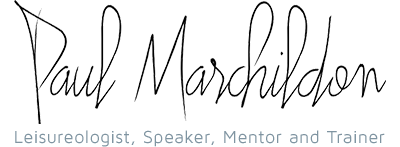Flow and the Game of Golf

Your brain can be like a micromanaging boss. You know how to do a task, almost at a cellular level, but it constantly knit picks, looking over your shoulder. Why are you doing it like that? Why don’t you do this? Did you check that? Hey, hey, you’re doing that wrong. Ok, that’s better. Wait, nope. In business, in life, in golf, overthinking is the enemy of creativity, of rhythm, of flow. The more you think about flow and the more you try to control it, the more it pulls away. Conversely, and here’s the good news, once you learn to let go, flow experiences just…flow.
In Golf Flow, author Gio Valiante, coach to golf greats Shean O’Hair, Stuart Appleby, Will Mackenzie, Chris DiMarco, Davis Love III, and more, writes:
You’ve practiced your game. Through that practice, you have deepened the habits by myelinating the neural circuitry. The myelin has insulated those circuits so they will fire efficiently and effectively. The various regions of your brain work in harmony and become synched up through the myelination of nerve fibers.
Looking for Work Life Integration?
Paul Marchildon, an experienced Leisureologist, can work with you and your team to increase productivity by incorporating leisure into the workplace.
In other words, your brain knows what to do. Valiante speaks in the context of golf, but this is true of any task in which we acquire automaticity. Think about driving. When you were first learning, you were conscious of every move. This is why you couldn’t take your hand off the steering wheel to wave to a friend on the side of the street without swerving towards him! You had to concentrate, but then it became second nature.
Now think about having a police officer behind you. You are worried about getting a ticket, and though you are a great driver, you become conscious of driving. You overthink it; you lose automaticity. And as a result, do you swerve a little to the right or left? Do you have a hard time maintaining consistent speed? Do your palms sweat as you stop – 1, 2, 3 – at stop signs?
It is the same with golf, with business, and with all other activities during which we experience a sense of flow. Our brains get in the way. Valiante, and other researchers, explain that trying to focus on “the quality of your performance is counterproductive because the cerebellum, which controls complex motor tasks, is not consciously accessible.” Psychologist Sian L. Beilock tested the theory on golfers because of the complex nature of the game. Golfers need to incorporate knowledge about swing, stance, leverage, and other technical aspects into their game.
Beilock assembled two groups of both novice and skilled golfers. Group one was told to take its time before putting, while group two was told to act as quickly as they could. Novice golfers performed better when they took it slow, but advanced golfers did worse. Those with more skills – and more myelinated circuitry – performed much better when they acted without thinking.
Valiante posits that the fastest way to undermine automaticity and “internal cohesion” is to force the conscious on the unconscious. This is true of complex motor skills, such as those required in golf, as well as processes that require creativity. Whether we are trying to put together a presentation for a client or paint a picture, our conscious micromanager can try to insert its thoughts and demands on us. When we can quiet that voice and let our innate creativity and ability take over, the results are incredible.
